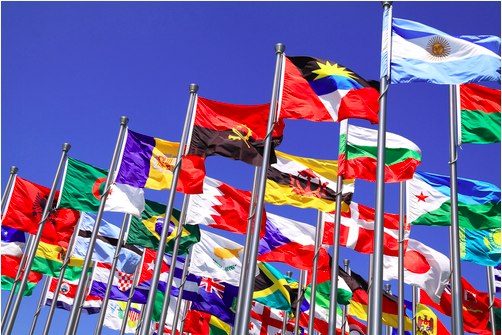 In today’s fast-moving and interconnected world, business people are constantly crisscrossing continents. However, it is important to understand that each country has its own customs and rituals and ways of doing business. It’s best to understand the customs of the country you are visiting as well as of the foreign business people visiting you to avoid those ‘culture shocks’.
In today’s fast-moving and interconnected world, business people are constantly crisscrossing continents. However, it is important to understand that each country has its own customs and rituals and ways of doing business. It’s best to understand the customs of the country you are visiting as well as of the foreign business people visiting you to avoid those ‘culture shocks’.
Here are some examples worth noticing.
In Cambodia, it is considered bad manners to pass something across a room over somebody’s head.
When you are in Egypt, remember not to cross your legs in front of someone. Showing the soles of your feet is considered rude.
If you are travelling to Malaysia, remember that they appreciate a handwritten note more than just an impersonal email.
In Mexico, if you are invited to someone’s home, don’t ever talk business (that can happen later). Instead, keep the conversation general – family, interests and so on.
In Singapore, give gifts to the company as a whole and not to individuals.
In Vietnam, only shake hands with people of the same sex.
The Japanese are very formal. When they hand you their business card, take it with both hands and give it due attention. Keep holding it in your hand – don’t slip it into a pocket. They will do the same when you present your business card.
When in Bahrain, don’t refuse that cup of tea. It would be considered disrespectful.
In China, it is important to give respect to age, seniority and educational background. They also exchange business cards formally at the start of a meeting. Take gifts that are properly wrapped. Wrap them before the meeting and don’t take them pre-wrapped in your suitcase as the paper might get crushed.
We know about British customs …but do remember that a good amount of small talk usually precedes a business discussion. First names are used and humour is appreciated. Obvious self-promotion may be frowned upon; self-deprecation scores more points. Observe formal dress codes. By the way, when they say “How are you?”, they are not enquiring about the state of your mental and physical being; it’s just a friendly way of saying “Hello”.
There are many other examples pertaining to customs in various countries especially when it comes to doing business. Whether you are travelling abroad or meeting foreign visitors in India, it makes sense to be sensitive to other people’s customs and rituals. Recently, a Chinese delegation visited DBS in Mumbai. Our homework on their customs helped create the right atmosphere and build relationships.
Even if one doesn’t know the precise customs to follow, sensitivity to the other person and genuine warmth and friendliness will go a long way. Sometimes not knowing the language is not a handicap; body language says it all.